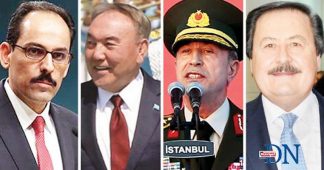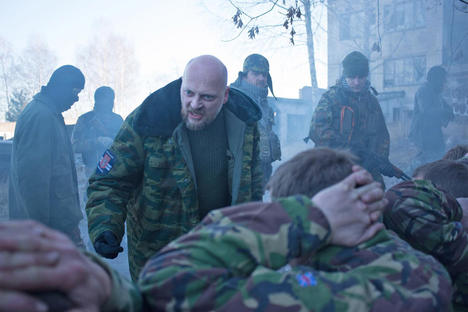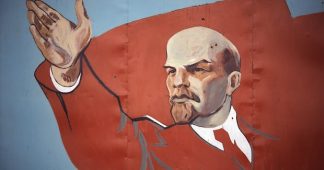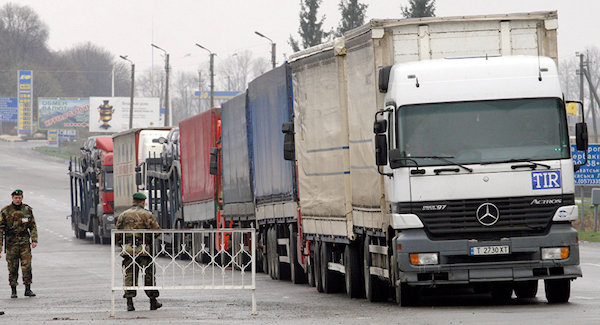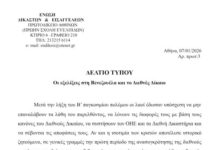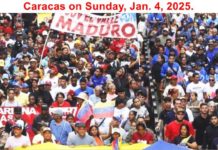‘Crime and Punishment’ 150 years on
By Victoria Drey
In August 1865, Gerasim Chistov, a merchant’s son and schismatic, was accused of killing two old women in order to rob their mistress. The apartment was strewn with items, and gold jewelry had been stolen from an iron chest. Both victims were killed with the same weapon: an axe. Many critics believe this true story inspired Fyodor Dostoevsky’s novel Crime and Punishment.
Read more at https://www.rbth.com/arts/literature/2016/12/28/crime-and-punishment-150-years-on_665891
The Decembrist Revolt in Russia, 1825 | Romanticism, Reaction, and Revolution
by
Russia, which did so much to determine the outcome of revolutions elsewhere, itself felt the revolutionary wave, but with diminished force. Liberal ideas continued to penetrate the country, spread by the secret societies that flourished in Russia after 1815.
The introduction of Freemasonry during the eighteenth century had enabled nobles to meet on equal terms with men from other ranks of society. Moreover, the contrast between the relatively enlightened West and backward Russia made a deep impression on officers who had served in the campaigns against Napoleon. High-ranking officers at St. Petersburg secretly formed the Northern Society, which aimed to make Russia a limited, decentralized monarchy, with the various provinces enjoying rights somewhat like those of American states.
Read more at https://bigsiteofhistory.com/the-decembrist-revolt-in-russia-1825-romanticism-reaction-and-revolution/
Alexander Herzen
Aleksandr Ivanovich Herzen (Russian: Алекса́ндр Ива́нович Ге́рцен; April 6 [O.S. 25 March] 1812 – January 21 [O.S. 9 January] 1870) was a Russian writer and thinker known as the “father of Russian socialism” and one of the main fathers of agrarian populism (being an ideological ancestor of the Narodniki, Socialist-Revolutionaries, Trudoviks and the agrarian American Populist Party). With his writings, many composed while exiled in London, he attempted to influence the situation in Russia, contributing to a political climate that lead to the emancipation of the serfs in 1861.
Read more at https://en.wikipedia.org/wiki/Alexander_Herzen
Vissarion Belinsky
Vissarion Grigoryevich Belinsky (Russian: Виссарио́н Григо́рьевич Бели́нский, June 11 [O.S. May 30] 1811 – June 7 [O.S. May 26] 1848) was a Russian literary critic of Westernizing tendency. Belinsky played one of the key roles in the career of poet and publisher Nikolay Nekrasov and his popular magazine Sovremennik.
Read more at https://en.wikipedia.org/wiki/Vissarion_Belinsky
Nikolay Chernyshevsky
Nikolay Gavrilovich Chernyshevsky (12 July 1828 – 17 October 1889) was a Russian revolutionary democrat, materialist philosopher, critic, and socialist (seen by some as a utopian socialist). He was the leader of the revolutionary democratic movement of the 1860s, and had an influence on Vladimir Lenin, Emma Goldman, and Serbian political writer and socialist Svetozar Marković.
Read more at https://en.wikipedia.org/wiki/Nikolay_Chernyshevsky
Russian nihilist movement
The Nihilist movement was a Russian movement in the 1860s which rejected all authorities. It is derived from the Latin nihil, meaning “nothing”. After the assassination of Tsar Alexander II in 1881, the Nihilists were known throughout Europe as proponents of the use of violence in order to bring about political change.
Read more at https://en.wikipedia.org/wiki/Russian_nihilist_movement
Georgi Plekhanov
Georgi Valentinovich Plekhanov (Russian: Гео́ргий Валенти́нович Плеха́нов 29 November 1856 – 30 May 1918) was a Russian revolutionary and a Marxist theoretician. He was a founder of the social-democratic movement in Russia and was one of the first Russians to identify himself as “Marxist.” Facing political persecution, Plekhanov emigrated to Switzerland in 1880, where he continued in his political activity attempting to overthrow the Tsarist regime in Russia.
Read more at https://en.wikipedia.org/wiki/Georgi_Plekhanov
Intelligentsia
The intelligentsia is a status class of educated people engaged in the complex mental labours that critique, guide, and lead in shaping the culture and politics of their society. As a status class, the intelligentsia includes artists, teachers, and academics, writers, journalists, and the literary hommes de lettres. Historically, the political role of the intelligentsia (the production of culture and ideology) varies between being either a progressive influence or a regressive influence upon the development of their societies.
The intelligentsia status-class arose in the late 18th century, in Russian-controlled Poland, during the age of Partitions (1772–95). In the 19th century, the Polish intellectual Bronisław Trentowski coined the term intelligentcja (intellectuals) to identify and describe the educated and professionally-active social stratum of the patriotic bourgeoisie who could be the cultural leaders of Poland, then under the authoritarian régime of Russian Tsarist autocracy, from the late 18th-century to the mid-20th century.
Read more at https://en.wikipedia.org/wiki/Intelligentsia
